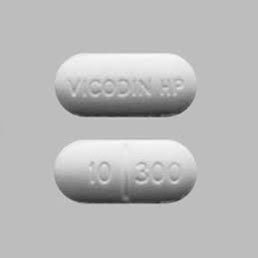Showing the single result
Understanding Vicodin Medication
Vicodin is a medication that contains two active ingredients: hydrocodone and acetaminophen. Hydrocodone is an opioid, which means it’s a type of pain medication that works by binding to certain receptors in your brain and spinal cord. Acetaminophen is a common pain reliever that’s often found in over-the-counter medications like Tylenol.
Together, these two ingredients work to relieve pain. Vicodin is typically prescribed for moderate to severe pain, such as after surgery or for chronic conditions like arthritis.
It’s important to note that Vicodin can be habit-forming, so it’s crucial to take it exactly as prescribed by your doctor. Misusing Vicodin can lead to addiction, overdose, and even death.
So be sure to follow your doctor’s instructions carefully!
Vicodin Dosage Information
The dosage of Vicodin will depend on a variety of factors, including your age, weight, medical history, and the severity of your pain. It’s important to follow your doctor’s specific instructions for your individual case.
That being said, the typical dosage of Vicodin for adults is 1-2 tablets every 4-6 hours as needed for pain relief. Hydrocodone shouldn’t be taken in doses greater than 60 mg per day.
If you’re elderly, have kidney or liver problems, or are taking other medications, your doctor may prescribe a lower dosage of Vicodin.
Potential Side Effects Of Vicodin
Like with any medication, there are potential side effects of taking Vicodin. Some common side effects include:
- Dizziness
- Nausea and vomiting
- Drowsiness
- Constipation
Talk to your doctor if you suffer any of these side effects. They might be able to change your medication’s dosage or prescribe a different one.
In rare cases, Vicodin can cause more serious side effects such as difficulty breathing, seizures, and even death. Vicodin is a medication that can be incredibly helpful for relieving pain. But, it’s crucial to take it exactly as prescribed by your doctor and to be aware of the potential side effects.
Dependence and Withdrawal
Vicodin is prescribed to people who have severe pain that other painkillers cannot relieve.
However, Vicodin is also a drug that can be abused. Some people take it to feel euphoric, relaxed or to get high. They might take more than the prescribed amount or use it without a prescription. These actions can lead to dependence, tolerance, and withdrawal.
Signs of Dependence and Withdrawal
Dependence and withdrawal can happen to anyone who takes Vicodin, especially if they take it regularly or for a long time. Here are some signs of dependence:
- To achieve the same effects, you must take more of the medication.
- You feel anxious or irritable when you don’t have the drug.
- You have trouble sleeping or concentrating when you don’t have the drug.
- You continue to take the drug despite negative consequences, such as financial or relationship problems.
Withdrawal symptoms can be severe and unpleasant. Here are some signs of withdrawal:
- Restlessness and agitation
- Muscle aches and pains
- Difficulty sleeping
- Diarrhea and vomiting
If you experience any of these symptoms, it’s essential to talk to your doctor about it. They can help you taper off the drug safely or give you other options for pain management.
How to Avoid Dependence and Withdrawal?
If you are prescribed Vicodin, there are some things you can do to avoid developing dependence or withdrawal. Here are some tips:
- Never take more or for a longer period of time than advised.
- Do not crush, chew, or break the pill. Swallow it whole.
- Do not mix Vicodin with other drugs or alcohol.
- Do not stop taking the drug suddenly.
If you are worried about addiction or dependence, talk to your doctor about other options for pain management. There are many other painkillers that are not opioids and can be effective in managing pain.

